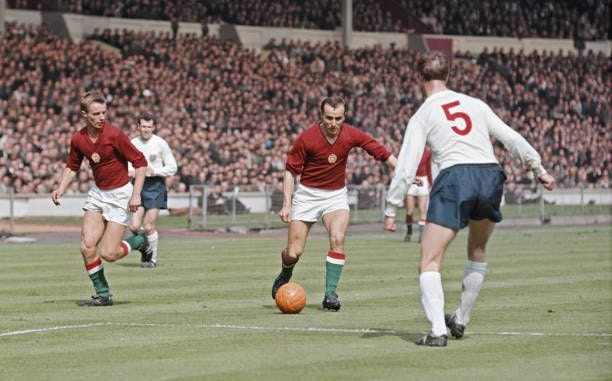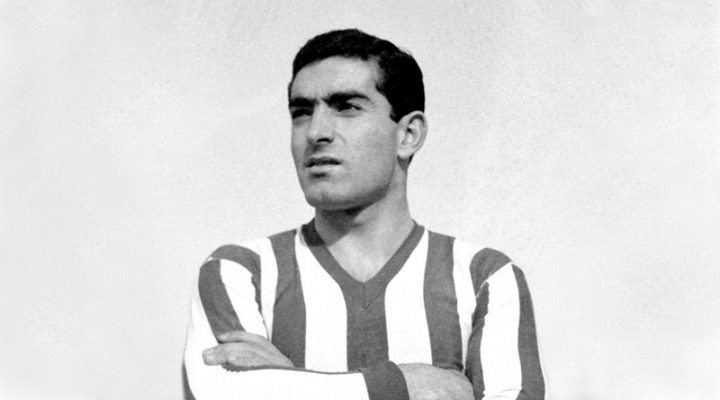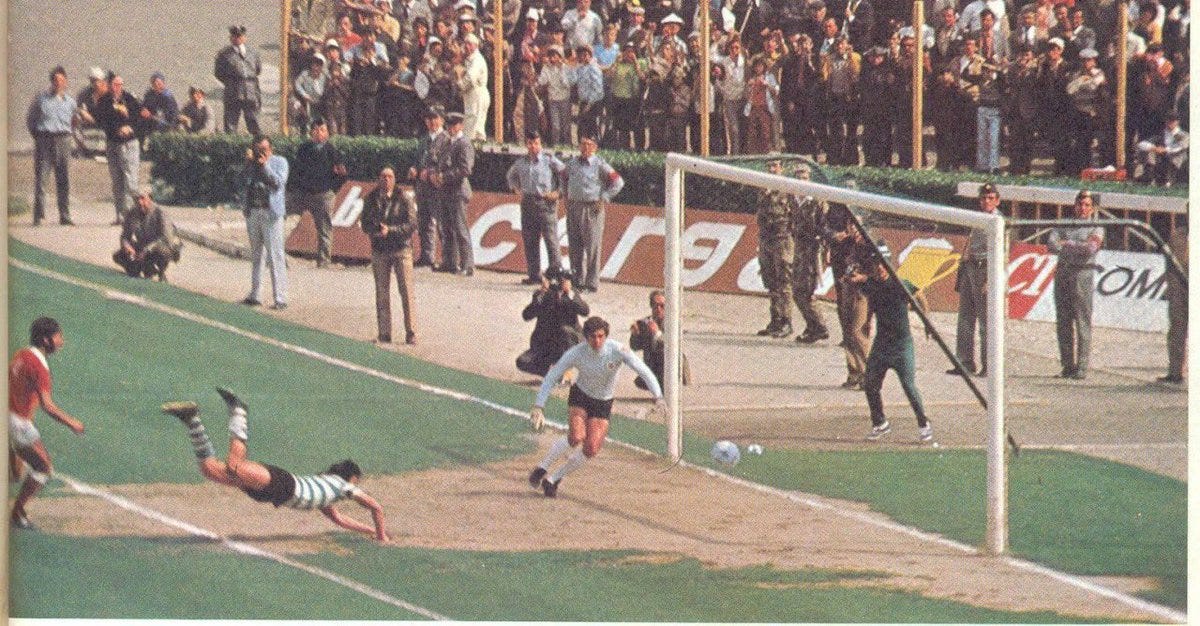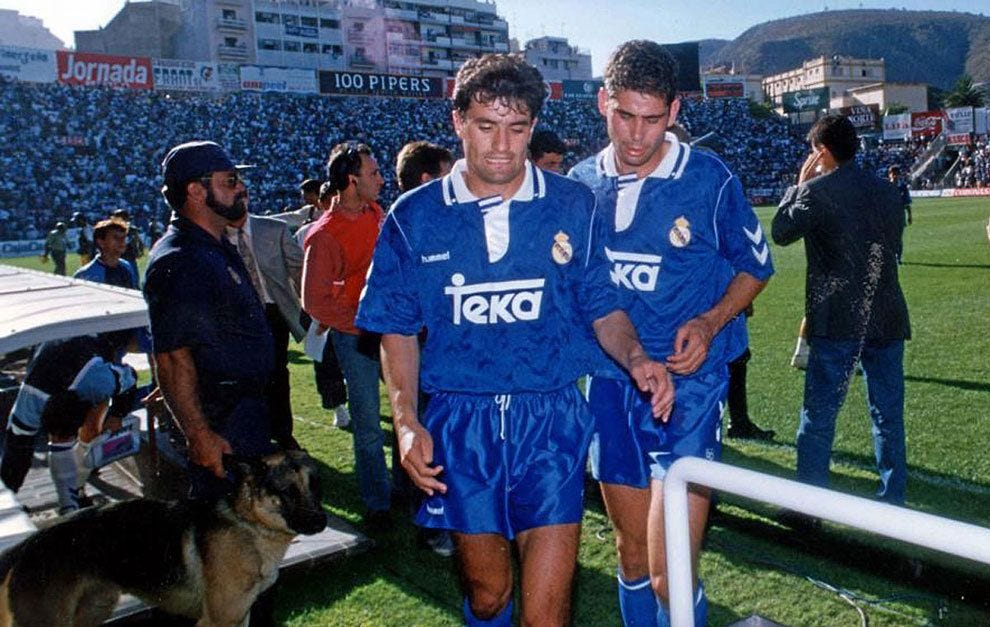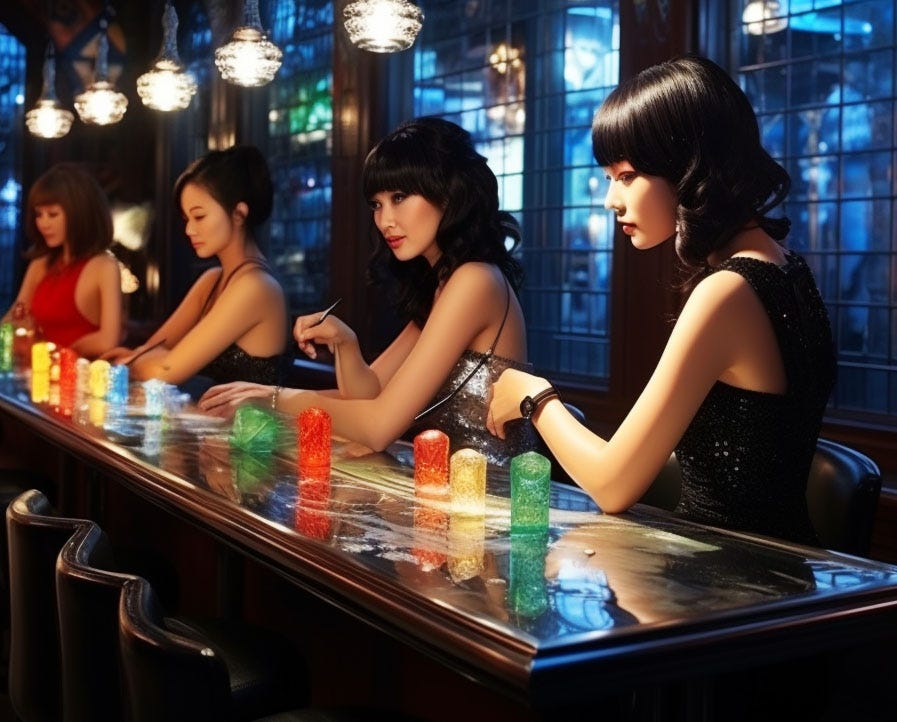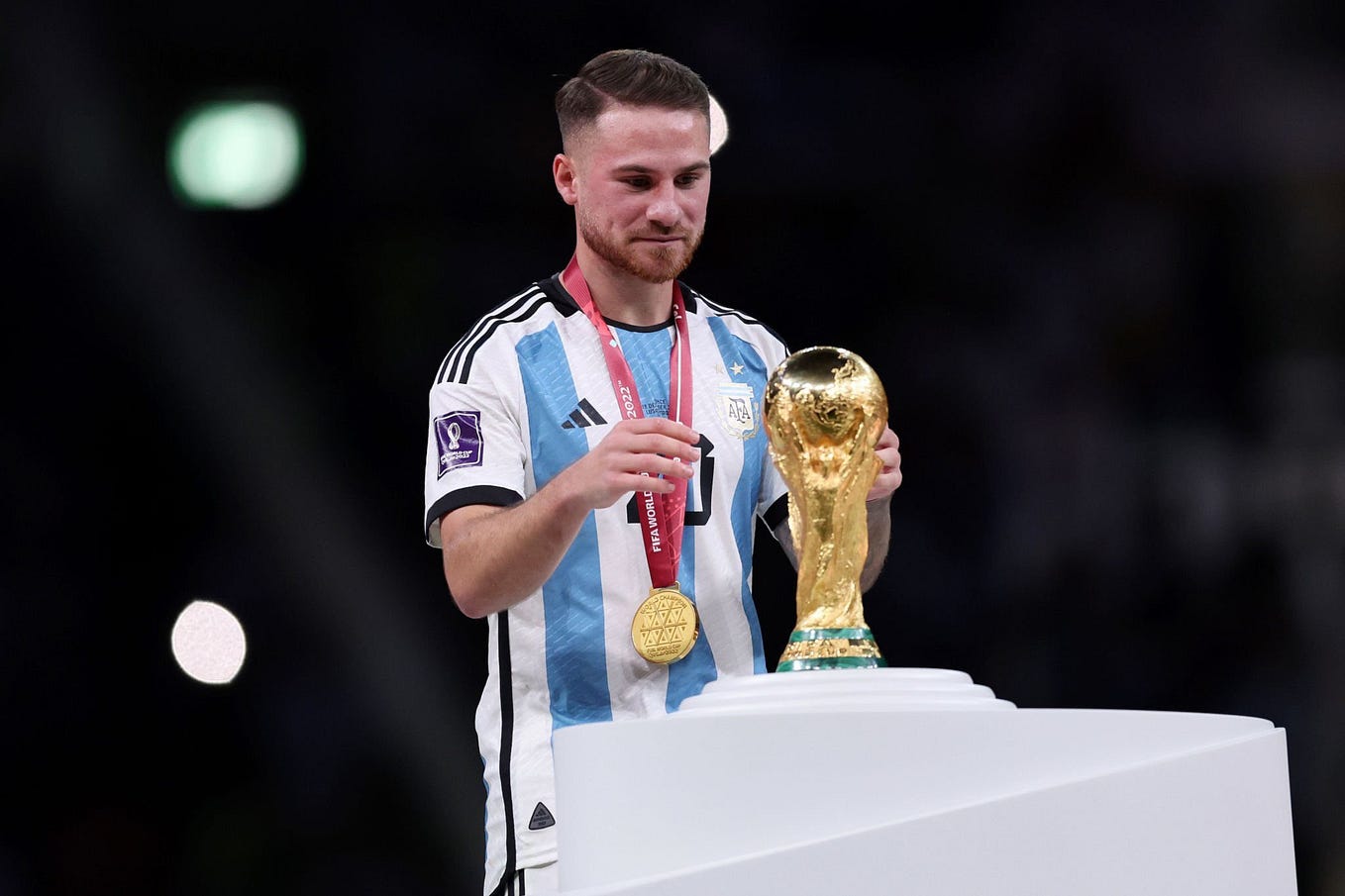José Águas: The Man Who Captained Benfica to Successive European Cups
[This article was published in issue #05 of FUTBOLISTA Magazine]
O Cabecinha D’Oiro
When you think of great headers of the ball, what names pop in to your head? Oliver Bierhoff, Miroslav Klose, Tim Cahill, Peter Crouch, Christian Vieri and Mario Jardel are some of the many names associated with the ability to out-jump their opponent (Crouch notwithstanding) and guide the ball into the net with ruthless repetition. But the name José Águas, nicknamed O Cabecinha D’Oiro (The Little Golden Head), is seldom mentioned outside his home country of Portugal despite possessing an incredible goal scoring record and captaining Benfica to successive European Cups in the 1960s.
Portugal’s Politics During The 1930s
During a period of Portuguese political turbulence, José Águas was born in Luanda, Portuguese Angola on 9th November 1930. In the eventful years leading up to the birth of Águas, mainland Portugal had suffered a military coup in 1926 along with multiple failed coup attempts in 1927. The following year, the Ditadura Nacional (National Dictatorship) was ushered in which led to, most notably, the appointment of future dictator António de Oliveira Salazar as minister of finance, the establishment of the Comissão de Propaganda da Ditadura (Comission of Propaganda of the Dictatorship), and an agreement with the Catholic Church, known as the Estatuto Orgânico das Missões Católicas Portuguesas da África (Organic Statute of the Portuguese Catholic Missions in Africa), to allow special status in Portugal’s colonies.
In addition to stifling the influence of Protestantism and spreading Catholicism throughout Portugal’s colonies, these missionary schools often introduced and heavily featured football as a tool for physical education. Although not their explicit aim, the impact these missionary schools would go on to have for Portuguese football is vital. Fernando Peyroteo, Matateu, Mário Coluna, Hilário Rosário da Conceição, Costa Perreira, Eusébio and the man of this story, José Águas, are just some of the players who hailed from the colonies and excelled in domestic, continental and international football; that isn’t to say football did not exist in the colonies prior to the establishment of missionary schools, far from it, but the introduction of said schools assisted Portugal in casting a wider net in finding talented footballers.
Shortly before Águas’ second birthday António de Oliveira Salazar was appointed Portugal’s 100th Prime Minister — a position he would not relinquish until 1968. Less than a year after his appointment, Salazar evolved the Ditadura Nacional and introduced the Estado Novo (New State) in which Portugal became a corporatist, single-party state which embraced nationalistic and isolationist policies in an effort to make Portugal a peaceful country free from foreign investment, economic competition and chiefly, free from any sort of political discourse and contest.
Salazar, like many leaders of his time, had fallen under the political umbrella of authoritarianism. Striking and protests were considered crimes and the regime was “obliged to handle this matter with extreme harshness.” The media was suppressed and forced to promote national unity and Salazar in a positive light for “newspapers are the spiritual food of the people, and like all foods must be controlled.” Dissidents and political opposition were routinely imprisoned and forced into exile.
Despite these restrictive enforcements, Salazar refused to fully align himself with Fascism stating “now obviously our dictatorship is similar to the Fascist dictatorship in its strengthening of authority, in the war which it declares on certain democratic principles, in its nationalist character, in its main tenants of the social order [but] it is different, however in its methods of renovation. The Fascist dictatorship is leaning toward a pagan Caesarism.” Seldom rubbing shoulders with Fascist leaders, save for aiding Francisco Franco in the Spanish Civil War, Salazar distanced himself from the likes of Benito Mussolini and Adolf Hitler and remained neutral (to an extent) during World War 2.
Águas’ Childhood
Meanwhile back in Angola, José Águas was beginning to find his love for football. “I was a skinny, frail kid,” said Águas, “in a nice little house by the railway station. The whistles of the trains were the musical accompaniment to the tears and laughter of my early days as a player.” At a young age Águas switched one port city for another. From Luanda to Lobito, spending countless hours on local beaches playing with a ball fashioned out of rubber became a consistent part of his routine. However, Águas’ mother Elisa believed he was too weak to seek a career in the sport and it wasn’t until the age of fifteen when he received his first pair of football boots.
Not long after, to accompany his job as a typist at Robert Hudson, a Ford concessionaire company, Águas joined the junior squad of the company’s affiliate team: Lusitano Lobito. His goal scoring abilities were apparent right from the start and he soon transitioned to the senior squad at the age of seventeen. Águas continued to impress and in 1950 Benfica were due to tour Angola, participating in fifteen matches across the state. Having recently beaten Bordeaux in the Taça Latina final — a precursor to the European Cup — Benfica were managed by Englishman Ted Smith, who was allegedly chosen due to a preference for an English manager following Portugal’s 10–0 defeat to England in 1947.
Lusitano Lobito were game number eight on Benfica’s fifteen-match tour and ardent fans of As Águias based in Angola had written to the Lisbon club describing the promise of their up-and-coming striker. Benfica watched, as Águas scored two goals in a 3–1 win and moved to sign him immediately. Ted Smith promptly invited the young striker to discuss his future while Águas fielded calls from FC Porto explaining “Tomorrow I’ll answer!” but tomorrow never arrived. Águas signed for Benfica soon after and completed the remaining tour scoring six goals in three games, including a hat-trick on his (unofficial) debut.
Flying Back to Portugal — A Dream Come True
He was handed his competitive debut on 18th September 1950 in a 2–2 draw with Atlético Clube de Portugal at Tapadinha. In a close-fought game, Águas found it difficult to find space and duly struggled. Hardly giving the media any time to place question marks over Benfica’s new signing, Águas responded with four goals in an 8–2 win over Braga; leading to an impressive debut season tallying twenty-nine goals in twenty-six appearances.
The ensuing decade would see Águas almost maintain a 1+ goal-to-game ratio notching 297 goals in 302 appearances in all competitions. The appointment of Otto Glória in 1954 brought league success in the Brazilian manager’s debut campaign — Águas’ first league title too — in an era dominated by a post-Cinco Violinos Sporting CP. Benfica would secure three league titles and Portuguese Cups as Águas enjoyed his most prolific spell under Glória, occupying the centre-forward role in a flexible WM (3–2–2–3), three times finishing top-scorer in the division.
Glória left for Belenenses in the summer of 1959 and was replaced by Béla Guttman, fresh off winning the league title with rivals FC Porto the previous season. Upon his arrival Guttman promptly sacked twenty senior squad members and focused his intentions on youth prospects. José Águas, Mário Coluna, Costa Pereira and Domiciano Cavém all survived the axe while players like José Augusto, José Torres, António Simões and Eusébio were brought in over the next couple of years.
European Success and Portugal’s Social Climate
Guttman’s 4–2–4 system, brought over from his time managing Sao Paulo in Brazil, had begun to work wonders. Águas collected yet another individual award for top scorer whilst Benfica ran away with the 1959/60 title. The following season would bear witness to the triumvirate of Cavém, Águas and Augusto stroll their way to the European Cup final where Barcelona were beaten in the infamous square posts final 3–2. O Cabecinha D’Oiro placed first as top scorer in both the domestic and continental competitions — and by some margin. Successive European Cups arrived with Eusébio. Brought in from Mozambique soon after Benfica’s triumph against Barcelona, The Black Panther slotted into the inside right position alongside fellow Mozambican Mário Coluna, to defeat Real Madrid in Amsterdam.
2–0 down following brilliant finishes from Ferenc Puskás, Águas kickstarted the comeback netting Benfica’s first in typical poachers fashion. With Eusebio’s free-kick flying under the wall and directly into the post, Águas pounced on the rebound and slotted into the net. Eight minutes later a beautiful left-footed strike from Domiciano Cavém just outside the ‘D’ rocketed into the top left-hand corner of the net but Puskás would grab a third for his hat-trick and keep Real Madrid in the lead going in to half time.
But it was the Mozambicans in Coluna and Eusébio scoring three goals in 19 minutes to propel Benfica to victory. Eusébio’s first, and Benfica’s fourth, came from a justly-earned penalty — rushing into the box from the right side of the pitch, Eusébio’s touch took the ball just of reach from the Real Madrid defender and the ensuing collision almost caused the Benfica star to perform a backflip. Five minutes later Eusébio scored his second: a powerful shot from a free-kick lay-off took a slight deflection, inflecting a spin onto the ball and changing its trajectory to fly through the keeper’s arms. The match finished 5–3 in Benfica’s favour and Águas lifted his second successive European Cup as captain.
Yet the success of Portuguese football in continental (and soon, international) competitions sparked heavy contrast with the wider socio-political landscape of Portugal. Throughout the 1960s, despite an economic boom from the previous decade, large parts of the country had no access to running water or sewage disposal systems; in many parts down to Salazar’s frugality with Government expenditure in rural Portugal. Income per capita was incredibly low and a large percentage of the population were considered illiterate due to the abysmally low post-primary school attendance figures. Additionally, growing political unrest in Portuguese colonies had marked the beginning of a bloody war for independence in Angola (1961), Portuguese Guinea (1963) and Mozambique (1964); forcing Salazar to devote more resources to fighting the war and increasing his military budget.
Benfica continued to dominate European Football reaching another three European Cup finals in six years but losing out to AC Milan (1963), Inter Milan (1965) and Manchester United (1968). Portugal meanwhile almost tasted victory at the 1966 World Cup as they were knocked by a Bobby Charlton-inspired England in the semi-finals. But the dominance of Portuguese football fell concurrently with Salazar’s regime.
The Prime Minister suffered a cerebral haemorrhage in 1968, relinquishing his position from office, and leading to his death in 1970. The Portuguese national team would fail to qualify for another competition until the 1984 EUROs. And the 1968 Benfica team would become the last Portuguese team to reach a European Cup final for 19 years, when Porto eventually won in 1987.
With Salazar out of the picture, the ongoing independence wars were finally brought to a close in 1974 after the Carnation Revolution had toppled Salazar’s Estado Novo regime. A new era of a democratic Portugal had begun and independence was granted to all existing colonies.
The End
As for Águas, following the 1962 European Cup final win against Real Madrid, Guttman had asked for a pay rise, been denied, subsequently left and placed his famous curse on Benfica — which still stands to this day. José Águas fell out of favour with new manager Fernando Riera and made a measly four appearances throughout his final season as Benfica reached yet another European Cup final; this time only to lose to a José Altafini inspired AC Milan side featuring Giovanni Trappatoni and Gianni Rivera.
He would go on to spend one season at Austria Vienna before hanging up his boots in 1964, calling quits on an incredible career which saw him lift five league titles, five Taça da Portugal’s and captain his team to two European Cup wins. He was succeeded by his son Rui, another famous name in Portugal, who would go on to adopt his father’s centre-forward position along with his spectacular aerial ability.

